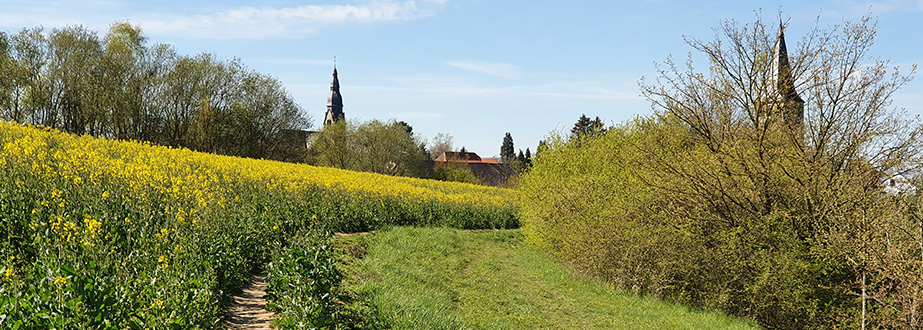The Common Agricultural Policy post-2020:
Recommendations from >300 scientists to improve performance for biodiversity
Report release – online event
Despite significant efforts and investments and some local successes, overall the EU’s Common Agricultural Policy (CAP) hasn’t been successful in halting the loss of farmland biodiversity. To address this weakness, the CAP post-2020 proposes a new “Green Architecture” comprising (inter alia) “enhanced conditionality”, Agri-Environment-Climate Measures and “Eco-schemes”. Will this new Green Architecture, combined with a result-based approach (which entails higher flexibility for Member States in terms of implementation), help address the biodiversity crisis?
Between October-December 2020, scientists from 13 Member States collected and delivered recommendations to improve the CAP’s performance for biodiversity in online workshops. The recommendations were complemented by an online survey. In total, over 300 scientists from 22 Member States have contributed from their expertise.
The full synthesis report, published on 19.5.2021, summarizes recommendations for both the EU and for individual Member States.
The independent study was conducted in co-operation with DG AGRI and the office of European Commission Executive Vice-President Frans Timmermans, and led by the German Centre for integrative Biodiversity Research (iDiv) Halle-Jena-Leipzig, UFZ - Helmholtz Centre for Environmental Research, Thünen Institute of Rural Studies, and Rostock University.
Date
19 May 2021
14:30–16:30
Presentations and panel debate on YouTube:
youtube.com/playlist?list=PLJFvA_Py3UkxVqqpfRix2evDEhQSH-TfT
See the full report in 3 volumes:
Vol 3:
Policy brief
Agenda
14:30–14:45
Greetings by Georg Teutsch, Scientific Managing Director, Helmholtz Centre for Environmental Research – UFZ
Opening speech by Janusz Wojciechowksi, Commissioner for Agriculture
14:45–15:10
Presentation of the study, approach and key outcomes by:
- Guy Pe’er, German Centre for integrative Biodiversity Research (iDiv) Halle-Jena-Leipzig & Helmholtz Centre for Environmental Research – UFZ, Dept. Ecosystem Services
- Maren Birkenstock, Thünen Institute of Rural Studies, Germany
15:10–15:30
Key issues on policy design presented by workshop coordinators in selected countries:
- Ireland: The role of landscape features and extensively managed grasslands, and how the three key GA instruments should address them. A point-based system? (John Finn, Teagasc Environment Research Centre)
- Spain: Regionalization and spatial planning: how can the Green Architecture address EU’s Green Infrastructure (Mario Diaz Esteban, Museo Nacional de Ciencias Naturales (CSIC) Biogeografía y Cambio Global)
- Italy: Considerations on the bioeconomy (Stefano Targetti, Alma Mater Studiorum Università di Bologna)
15:30–15:50
Key issues on policy implementation presented by workshop coordinators in selected countries:
- Bulgaria: Setting ambition right in counties with much more than 10% nature, and a rapid loss of small- and traditional systems (Yanka Kazakova, University of National and World Economy)
- France: setting the indicators and monitoring right to achieve the EU’s Green Deal. Result-based CAP? (Hervé Guyomard, Institut National de la Recherche Agronomique (INRAE))
- Slovenia: Meeting implementation challenges while filling institutional and data gaps (Tanja Šumrada, University of Ljubljana)
15:50–16:20
Introduction to panel discussion by Lukas Visek, cabinet member, office of Executive Vice President Frans Timmermans
Structured panel debate with questions and answers from the public. Panelists:
- Guy Pe'er (iDiv / UFZ, Germany),
- Alan Matthews (Trinity College, Ireland),
- Mike Mackenzie (DG Agri Unit C1: Policy Perspectives),
- Maria Fuentes (DG Agri Unit D2: Greening, Cross Compliance and POSEI)
16:20–16:30
Closing statements by Pierre Bascou (Director, Sustainability and Income Support, DG AGRI) on the way forward: what's next?

